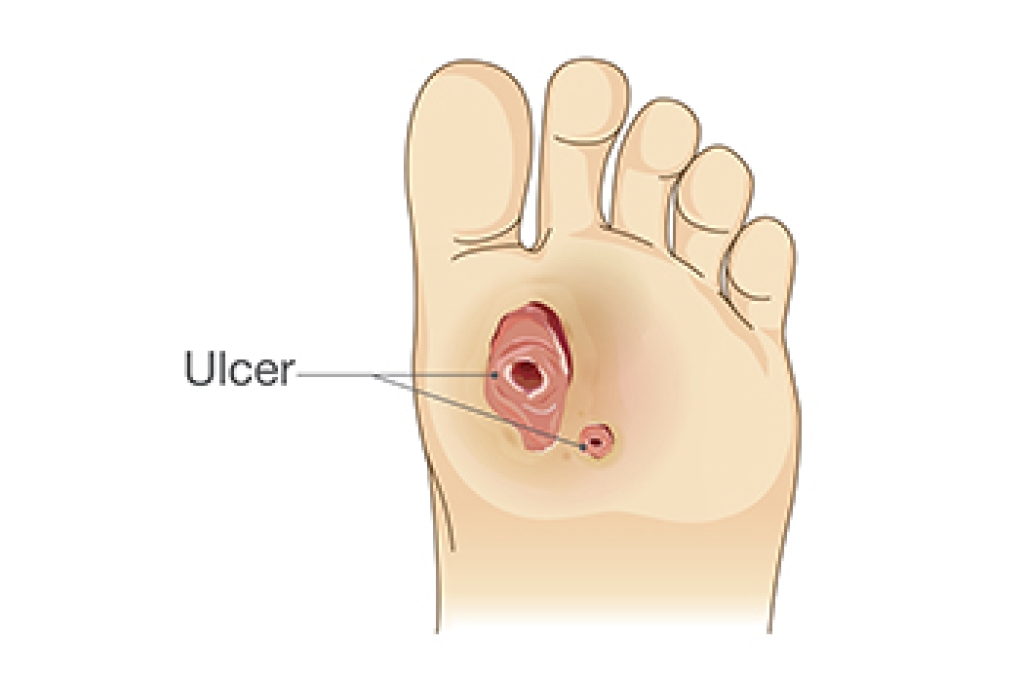
Diabetes affects the body's ability to heal foot wounds due to its impact on metabolizing glucose. High blood sugar levels hinder wound healing by preventing efficient nutrient and oxygen delivery, reducing immune system function, and increasing inflammation. Peripheral neuropathy, common in diabetes, can lead to reduced sensation in the feet, making foot wounds more prevalent. Poor circulation, often linked to diabetes, further impairs healing by reducing blood flow and affecting red blood cell function. Immune system deficiencies in diabetes hinder the body's ability to heal foot wounds and increase the risk of infection. Elevated blood sugar levels also promote bacterial growth, worsening the risk of infection. To aid in foot wound healing, performing regular self-foot checks are crucial in detecting wounds early. Removing dead tissue, keeping dressings fresh, and avoiding pressure on the wound can facilitate healing. If you experience symptoms such as tingling, burning, or persistent pain, or if your foot wound worsens, it is suggested that you make an appointment with a podiatrist as quickly as possible who can help you manage this serious condition.
Wound care is an important part in dealing with diabetes. If you have diabetes and a foot wound or would like more information about wound care for diabetics, consult with Dr. Yeon A. Shim from Roselle Podiatry Group. Our doctor will assess your condition and provide you with quality foot and ankle treatment.
What Is Wound Care?
Wound care is the practice of taking proper care of a wound. This can range from the smallest to the largest of wounds. While everyone can benefit from proper wound care, it is much more important for diabetics. Diabetics often suffer from poor blood circulation which causes wounds to heal much slower than they would in a non-diabetic.
What Is the Importance of Wound Care?
While it may not seem apparent with small ulcers on the foot, for diabetics, any size ulcer can become infected. Diabetics often also suffer from neuropathy, or nerve loss. This means they might not even feel when they have an ulcer on their foot. If the wound becomes severely infected, amputation may be necessary. Therefore, it is of the upmost importance to properly care for any and all foot wounds.
How to Care for Wounds
The best way to care for foot wounds is to prevent them. For diabetics, this means daily inspections of the feet for any signs of abnormalities or ulcers. It is also recommended to see a podiatrist several times a year for a foot inspection. If you do have an ulcer, run the wound under water to clear dirt from the wound; then apply antibiotic ointment to the wound and cover with a bandage. Bandages should be changed daily and keeping pressure off the wound is smart. It is advised to see a podiatrist, who can keep an eye on it.
If you have any questions please contact our office located in Roselle, NJ . We offer the newest diagnostic and treatment technologies for all your foot and ankle needs.

